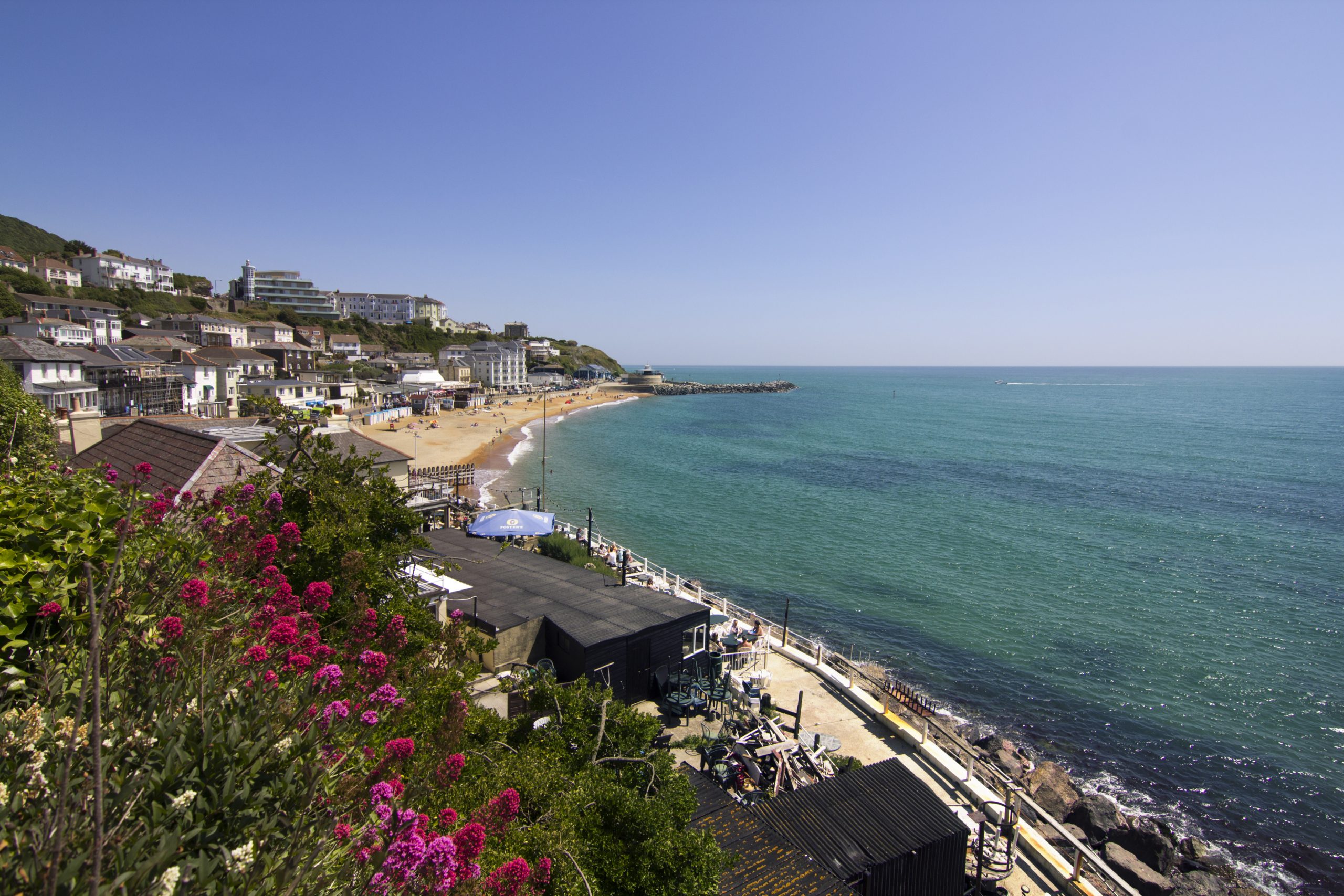
An early summer break on the Isle of Wight
What’s it like to holiday on the Isle of Wight with your family in May? We asked local freelance writer Chris Horton to tell us about his short break with his tribe.
Despite only visiting a handful of times, the Isle of Wight has, rather interestingly, been a real constant in my life.
The thing is, I see the island every morning—driving along Southsea seafront on my way to work overlooking the Solent, glimpsing the town of Ryde looking resplendent in the spring sunshine. However, with it being so near it perhaps has always felt as if it would be like holidaying in the backyard. Of course, those of you who have holidayed there before will know that despite being only five nautical miles from the mainland, this magical island is a true treasure of the British isles. A one of a kind gem that at once feels so familiar yet enchantingly unique.
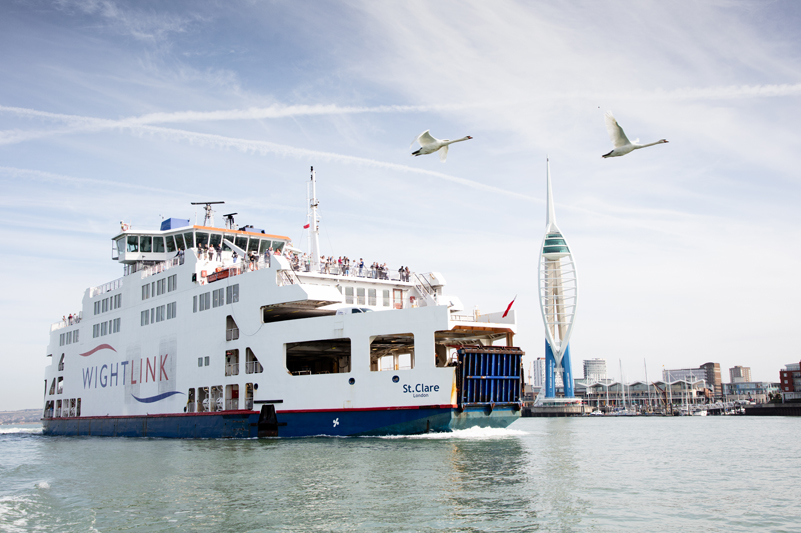
As a family—myself, my wife, and our two children— we love a short break, and an early summer bank holiday weekend was the perfect opportunity to spend a couple of days exploring the southeast of the island. For our kids, aged 9 and 5, any holiday that involves sailing across a body of water is automatically exotic and adventurous. After a smooth and quick embarkation onto our Wightlink ferry, we headed up to the deck to wave goodbye to the mainland and watch Portsmouth’s iconic Spinnaker Tower shrink on the horizon. After tucking into a croissant and coffee on board there was just enough time for a quick family selfie before arriving at our holiday island for the next 48 hours.
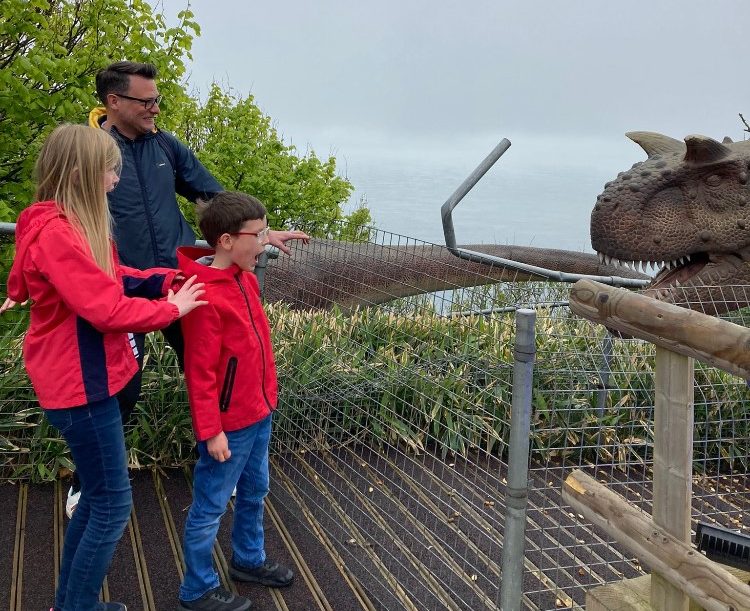
With kids in tow we always think about getting them to expel their holiday energy right from the off, so of course, a visit to a theme park seemed appropriate. Not just any theme park though, but the UK’s oldest. 186 years young, Blackgang Chine is a delight! Small enough to experience in one day, though the ticket price includes weekly access and the range of rides and attractions would easily stand up to another visit if you were staying longer on the island.

The park is a mix of that peculiar, old-fashioned eccentricity you only seem to find in British resorts, combined with a nod to the present. It may be the grandfather of theme parks, but it certainly isn’t ready for retirement any time soon. ‘Extinction’ is the perfect ride for thrill-seekers, and its 360-degree spin will keep the older kids happy. The park also offers plenty for the youngest family members, mainly in the form of themed areas (western, under the sea, etc.) that you can explore. For us, the kids loved ‘Evolution’—a falling tower-style ride that is perfect for families. Among the old-school attractions still going strong, the children enjoyed the hall of mirrors the most. The house is also home to the whale bones originally displayed when the park opened. It’s another little curiosity in this fun-filled, quirky destination.
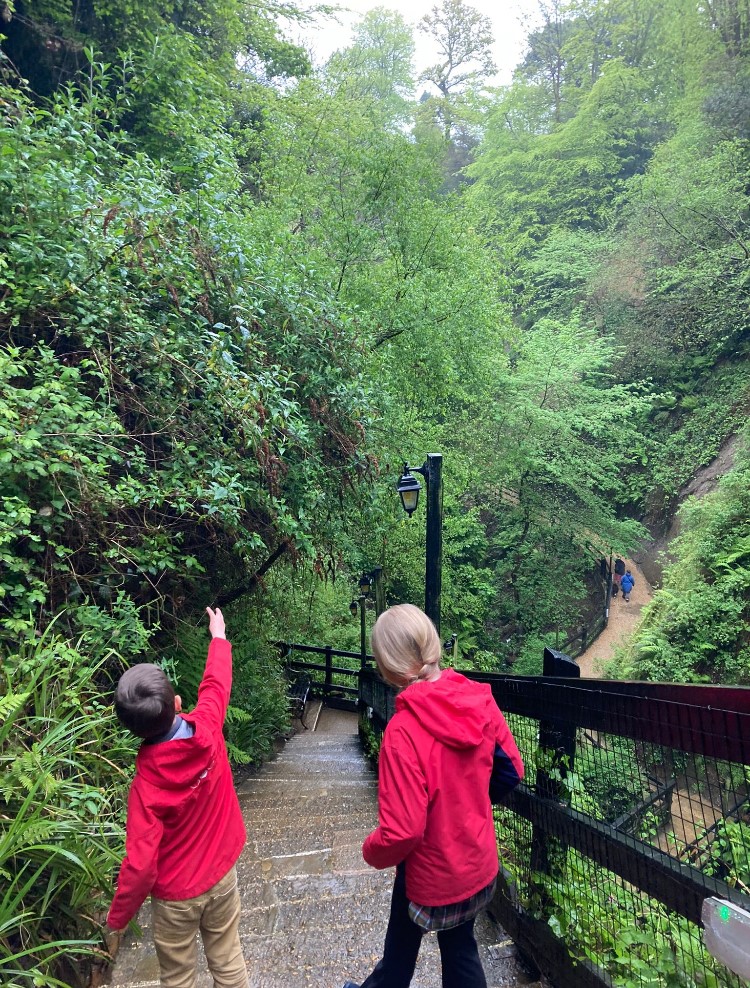
Before visiting the island, I had never heard of the term “chine.” Within a matter of hours, I had visited two of them (in fact, the island itself has 20). A chine, I found out, is a deep-sided coastal gorge, and this one—Shanklin Chine—is the Isle of Wight’s oldest tourist attraction. Opened in 1817, it contains a 45-foot waterfall, which at its highest point cascades down and along a plant-filled ravine towards the sea. It’s like something out of Jurassic Park and, in fact, just as the kids and I start humming the theme tune, we spot a family of dinosaur sculptures among the ferns. The chine also has historical significance due to the PLUTO (Pipeline Under The Ocean) war pipes, which were used during World War II to transport fuel and there’s plenty of info and assemblage of artefacts from this era on display.
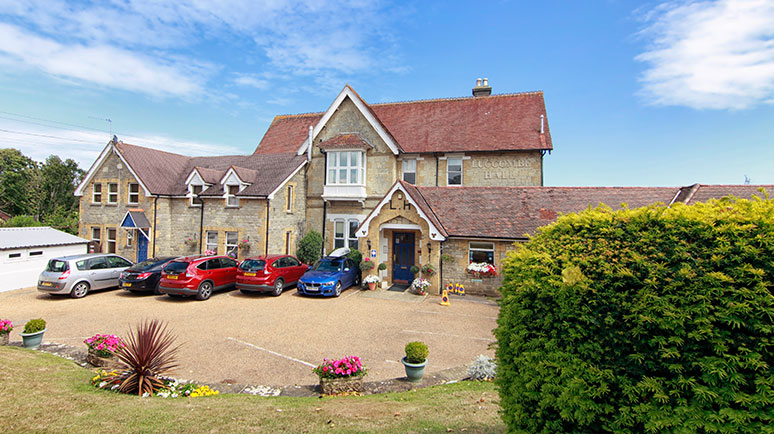
Just a 5-minute walk away is our accommodation. Luccombe Hall in Shanklin, is a family-run hotel that beautifully blends warm, friendly service with high-end amenities. We stayed in one of the hotel’s superior family rooms with a private garden and hot tub. Our secluded garden space beyond the room’s patio doors provided easy access to the main outdoor pool area which meant after a day exploring the local sights, a late afternoon splash in the pool was very welcome indeed.
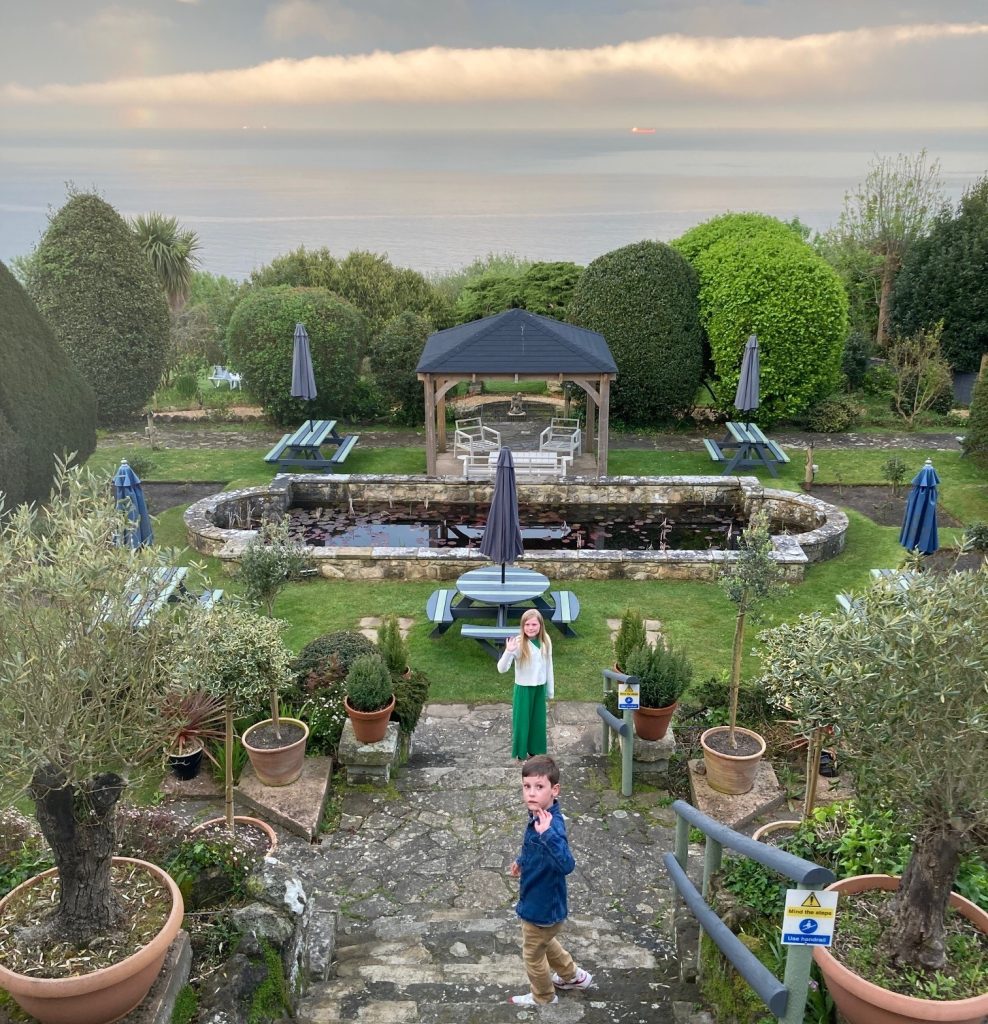
Following dinner in the hotel’s restaurant, we enjoy a post-dinner stroll through the gardens as the evening light casts a beautiful glow across the Channel. The garden and the views across the water are arguably some of the hotel’s strongest selling points and with a mini putting green, a giant chess set, and numerous seating areas tucked away in little nooks, we spend a delightful hour mooching about and watching the sunset. Luccombe Hall can offer a special discount on ferry costs with Wightlink when booking directly with them, making the stay even more appealing for both families and couples alike.
The next morning we’re up early (when you share a room with kids on holiday you’ll know the drill!) but it means that after our delicious breakfast we have time to take a dip in the hotel’s indoor pool before checking out. The kids love the oversized rain shower that intermittently flows down into the water whilst my wife and I have one final soak in the hot tub.

Luccombe’s location makes it perfect for exploring the east of the island. Just 20 minutes away is the pretty seaside village of Ventnor. Ventnor has a unique independent spirit with plenty of small businesses like eateries, coffee shops, and gift shops. We had lunch at the newly opened Shell Cafe on the High Street, and a very delicious (and reasonably priced) round of sandwiches was consumed. For dessert, we walked round the corner and ate ice cream at Crave—an independent ice cream parlour whose queue told us we were in for a treat. Despite its obvious popularity, samples were offered with a smile, and I thoroughly enjoyed my coffee and shortbread double scoop! To walk off all this lovely food we took a stroll along the seafront, the kids running ahead on the sand whilst my wife and I started planning for our return trip.
About the blogger: Chris Horton is a freelance writer based in Southsea. He enjoys travelling to new places with his wife and two kids, hiking with friends and watching live music – often writing about these experiences for a number of local and national publications.
